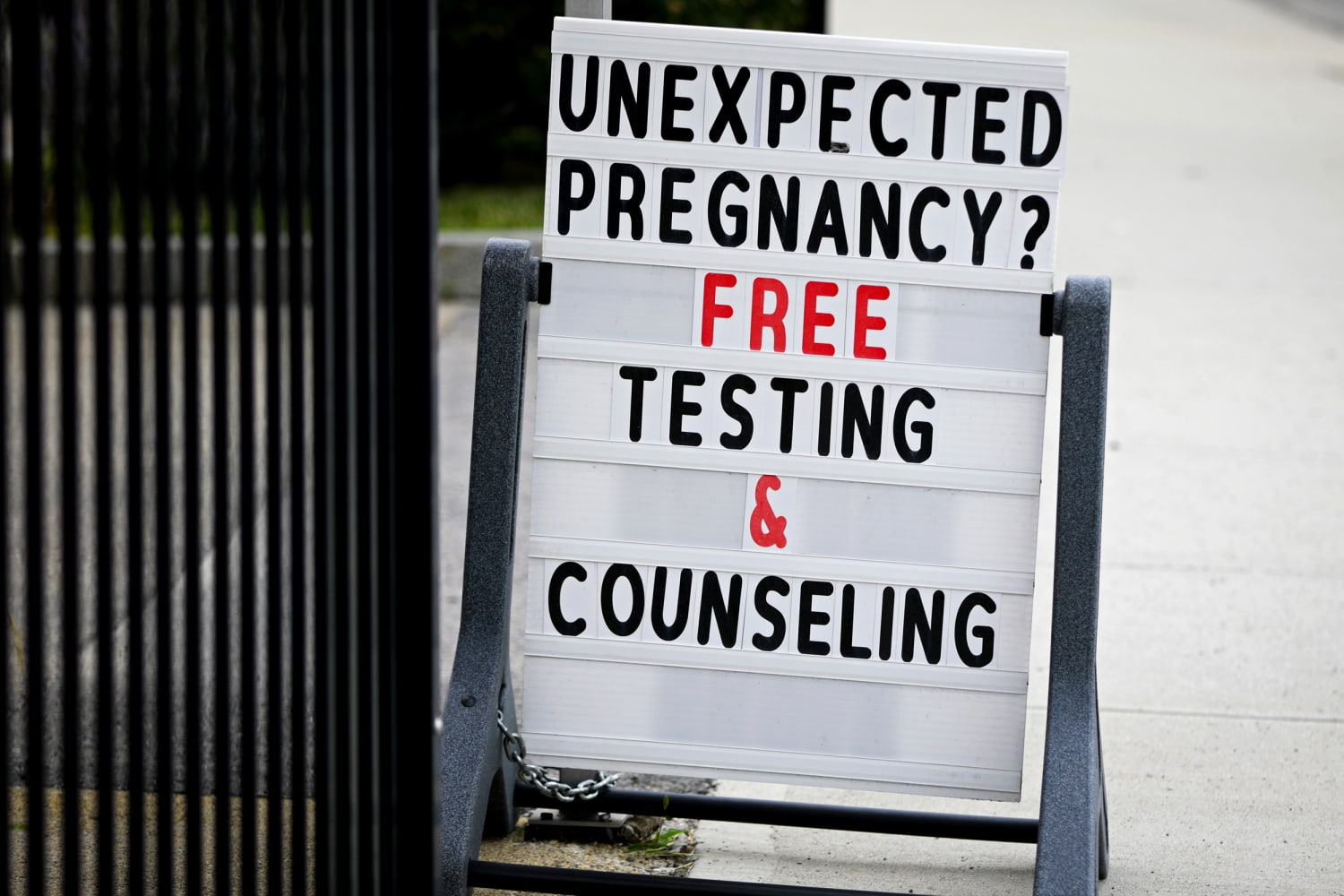Local anti-abortion organizations disguise themselves as medical clinics with the true goal to prevent abortion access

Image via NBC.
The Abortion Rights Coalition reports 157 Crisis Pregnancy Centres (CPCs) operating in Canada, with 90.5 per cent of them running as charities. Twenty-seven of those centres operate in B.C.
CPCs are non-profit organizations, established by anti-abortion groups to prevent people from having abortions. The CPC movement emerged out of Catholic anti-abortion activism in the United States.
Robert Pearson, who founded the first CPC after Hawaii legalized abortion in 1967, said that “the girl who wants to kill her baby has no right to information that will help her kill her baby.”
Birthright was the first CPC in Canada, established in 1960 in Toronto, Ontario. Their website states that Birthright “is a non-profit charitable organization that has been providing love and support for over 50 years to women facing unplanned pregnancies.”
Since then, Birthright has expanded across the U.S., Africa, and Canada. Two Birthright chapters operate in B.C., one in Vancouver, and the other in Victoria.
In Canada, abortion has been considered a healthcare service since 1988, twenty years after Birthright’s establishment. CPCs are allowed to operate under Canada’s freedom of speech laws and are granted exemptions from certain regulations as charitable organizations. But, for many years, these organizations have continued to operate disguised as medical clinics that provide services including pregnancy testing and counselling.
It wasn’t until October 2024 that the Canadian government introduced legislation requiring organizations like Birthright to “explicitly disclose if they do not provide abortions, birth control, or referrals to these services.” Otherwise, these organizations risk losing their charitable status.
The Canadian government states that CPCs “often look like clinics or support centres, but they are designed to discourage people from getting an abortion.” Other reputable institutions like the Vancouver Island Women’s Clinic (VIWC) state that CPCs “try to influence vulnerable individuals to continue their pregnancy by frightening them. Some will say anything to have you keep your pregnancy.”
Dr. Emily Stuart, member of the National Abortion Federation and staff member at VIWC, said that the misleading information and resources can “make patients feel guilty or judged for considering abortion, causing delays as people may need time to recover from the emotional distress caused by the interaction.”
“I have many patients who have gone through this, unfortunately,” Dr. Stuart said.
The Victoria Birthright chapter advises that “chemical abortion” — referring to the abortion pill, known also as a “medical abortion” — is available in B.C. for up to ten weeks. However, according to the Vancouver Island Women’s Clinic, “your pregnancy must be under nine weeks from the beginning of your last period” to have a medical abortion. Surgical abortions, on the other hand, can occur after nine weeks and up to 24 weeks.
However, not every clinic is equipped to perform surgical abortions, meaning people who don’t have easy access to clinics face many challenges to get the healthcare they need.
“If you live in remote BC, where access to surgical abortion is limited, the time lost by visiting a CPC can lead to missed windows for medication abortion, which may be the only viable option in their city,” said Dr. Stuart.
“I have lots of patients from vulnerable populations, such as refugees, students, out-of-country visitors, and those part of marginalized communities, who may face additional layers of difficulty,” said Dr. Stuart.
The Canadian government also recognizes that youth, Indigenous and racialized people, people living with disabilities, as well as members of the 2SLGBTQI+ community may face greater difficulty in accessing these services.
CPCs use deceptive tactics to present themselves as legitimate healthcare providers. At first glance, web pages like Birthright Victoria show “unplanned pregnancy support,” “pregnancy options,” and “young and pregnant” resources. But upon further inspection, they encourage people to talk to them directly, stating that “Birthright can explore the reasons you’re considering abortion with you and possibly offer alternative pregnancy options.”
People searching “Victoria abortion clinic” online may be led by their browser to a CPC, rather than a legitimate clinic. Such was the case of Reddit user shmushmorshtion, who wrote in a post on the platform, “I knew abortion was right for me, I had a supportive partner, and it was still a vulnerable time…. I can’t imagine what it would be like for someone who wasn’t as confident in their decision, and/or who didn’t have a support system, trying to access healthcare and instead ending up at one of these places.”
The deceptive tactics of CPCs are a serious concern for reproductive health access, especially for marginalized communities. Spotting CPCs can be challenging, but there are key signs to look for. A clinic that offers abortions will clearly state the full range of reproductive healthcare services they provide, including abortion, contraception, and prenatal care. CPCs will use language like “pregnancy support” while avoiding mentioning abortion.
“[CPC] tactics scare people, and can delay their care, which add barriers to patients seeking abortion care who are already navigating difficult situations,” said Dr. Stuart, “We need to be doing everything we can to increase access to medical care for Canadians, and this includes access to safe and timely abortion care.”







